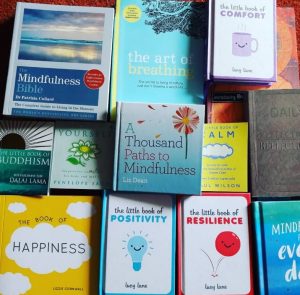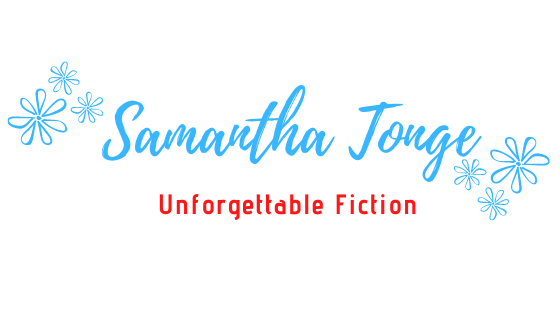I’ve just completed two years of various treatments for a drinking problem and eating disorder, both caused by mental health issues. There are positives to take from what has happened. On my journey into recovery I’ve learnt a lot about mental health as well as mindfulness and Buddhism. I feel armed with an arsenal of tools to – hopefully – prevent me hitting a rock bottom again.
Here are the most stand-out elements of the knowledge I’ve gained.
There is no such thing as normal – you will often hear someone with poor mental health enviously say they wish they were normal. It’s a false aspiration because every person has their story behind the scenes. Normality cannot be defined and therefore doesn’t exist. A better word to use is “ordinary”. And ordinary life it one to be valued where the small things matter like a beautiful sunrise or kind gesture. One key to good mental health is learning to be satisfied with the great things you’ve already got that you may be overlooking; and realising you don’t need to chase the high life to be happy.
Mother Nature has wired us think negatively – to protect us from taking risks. Once you recognise this you are given the power to understand your negative thinking and dismiss it. So try to identify those voices that are holding you back; telling you to be afraid of trying something new – telling you that you won’t be any good. Mother Nature was right to make us wary when we went hunting – but it’s less relevant if it’s about contacting a potential agent or going on a first date.
Other types of negative thinking can be disarmed once they see them for what they are. For example mindreading – thinking you know what other people are thinking. Say a friend walks down the street and ignores you, an immediate assumption might be that you’ve done something wrong and your self-esteem plummets. The thing is, you don’t have a crystal ball and don’t know the truth. Perhaps your friend didn’t see you or is simply having a bad day. And try not to label yourself. “I’m a bad person”. And ditch black and white thinking, like “I never get things right”. You’re human. Sometimes you will make mistakes. This doesn’t define you.

Mindfulness has taught me to live in the present and this helps mental health enormously. You can’t change the past so don’t let it fester. You can’t predict the future so there’s no point thinking about it. Took a bad interview yesterday? It’s over. Move on. Convinced you’ll fail the one tomorrow. You don’t know that so there is no point worrying. All of this seems very easy to say, but from personal experience I know that it really is possible, over time, to retrain your mind.
Buddhism has taught me not to attach to the good or bad times. A spate of great book reviews? Enjoy but it may not last. A poor sales ranking? That won’t last forever either. Any career – like life – enjoys peaks and suffers troughs. Buddhism has made me realise that attachment – to anything – brings expectations and that can lead to disappointment, feeling like a failure and low self-esteem if things don’t go to plan. I find it’s much healthier if I accept that life – health, careers, relationships – is fluid and ever-changing. This is especially useful if I suffer a set-back. I now have the perspective to look back and see the proof that terrible things may happen but life does move forwards again, eventually.
Talking really is good – for years I hid my eating disorder issues and later my problems with alcohol. I ended up feeling as if I was leading a double life. People have said I’m brave for coming out about my poor mental health but, to be honest, it just feels like a massive relief. And it’s been humbling, since speaking publicly, how many people have contacted me privately to share their problems. It’s worrying, as well, that they feel they have to hide their conditions. We wouldn’t hide an arthritic hand or sickness bug. We shouldn’t have to hide illnesses of the mind.
I learnt that treatment can be hard to get. I wasn’t at the end of the alcoholic spectrum, drinking 24/7 and needing a detox, and therefore my path wasn’t straightforward. Alcohol services have been cut and certainly in my locality funding for patients not as far into addiction has been lost. And it’s also a well-documented fact that nationally the treatment available for eating disorder sufferers is dismal, even though out of all mental illnesses it’s the one with the highest suicide rate…
BUT
I feel positive about the future – finally people are being more open. Talking about poor mental health is the only way we can get rid of stigma and save lives. It’s the only way governments will realise more needs to be done. And that’s one reason I’m so glad my new novel, Forgive Me Not, is getting into the hands of readers. I hope it offers an insight into addiction and the related mental health issues.
So if you’re going through a difficult time, don’t be ashamed of feeling down. Statistics prove you are far from alone. Open up. Tell someone. And begin your journey to getting better.


It’s great to read of your mental health break-through, Sam. I had a breakdown in my late 50’s, mainly caused by grief through the deaths of four special people – the last my beloved mother. I had been brought up to be ‘stoic’ and couldn’t understand why logic didn’t help…I became phobic about several things, but emerged an empath. In my mature years, I am mindful, appreciative, thankful, a Humanist and very, very fortunate. Hugs x
Four people? Goodness me, how tough, sorry to hear that Joy, but well done for coming out the other side. Yes, I feel the same – I’ve emerged from my rock bottom very grateful and with a toolbox of techniques to help me with the challenging times. Glad things are so much more positive for you now 🙂 x